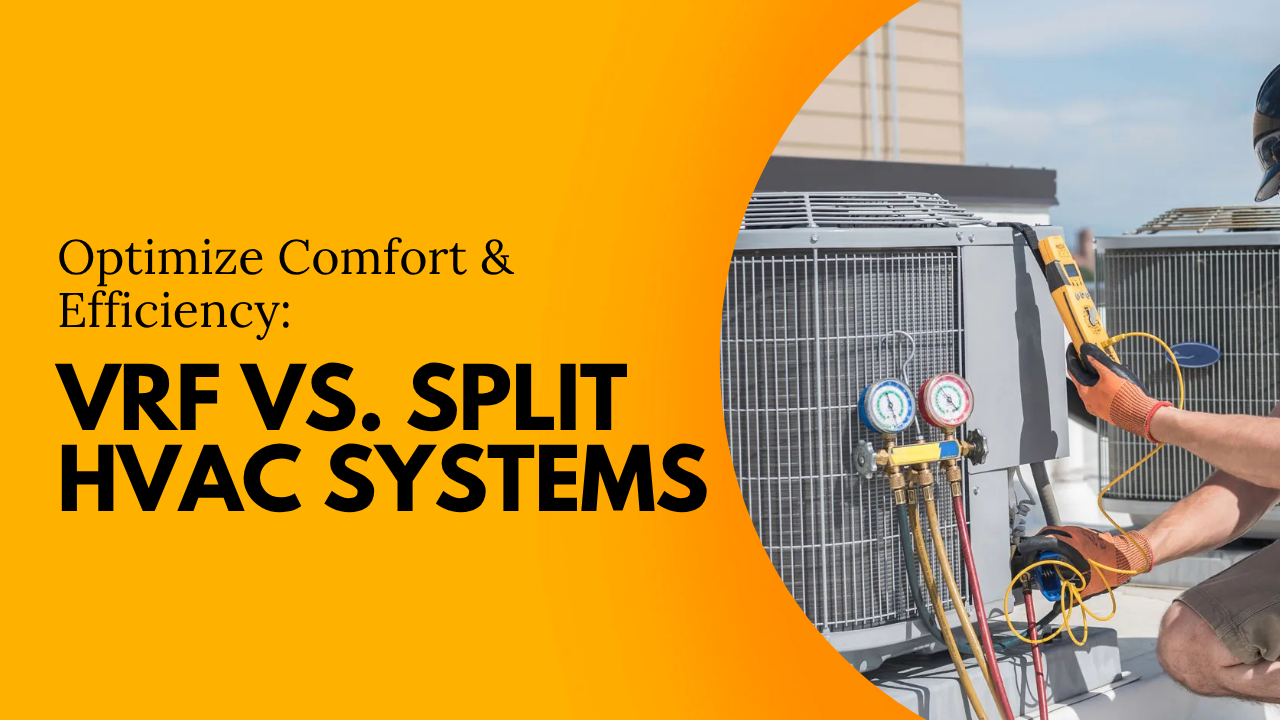VRF vs. Split Systems: Choosing the Best HVAC Solution for Your Project

In Dubai’s rapidly evolving construction and interior design industry, HVAC Contractors in Dubai are playing an increasingly critical role in delivering efficient, sustainable, and comfortable indoor environments. As the city continues to grow with new offices, hotels, retail spaces, and residential towers, the selection of the right HVAC system has become a crucial decision for developers and property owners. One of the most common choices lies between Variable Refrigerant Flow (VRF) systems and traditional split systems. Both offer distinct advantages, but understanding their differences and applications is essential for project success.
Choosing the right HVAC system not only impacts comfort and energy efficiency but also affects long-term operational costs, maintenance requirements, and integration with interior fit outs. With Dubai’s modern buildings emphasizing smart technology, sustainability, and design aesthetics, professional HVAC contractors must work closely with interior designers and project teams to recommend solutions tailored to specific needs.
Understanding VRF and Split Systems
Variable Refrigerant Flow (VRF) Systems
VRF systems are advanced HVAC solutions designed for multi-zone applications. A single outdoor unit can connect to multiple indoor units, allowing each area or room to maintain a separate temperature. This flexibility is ideal for large commercial spaces, hotels, or multi-story residential buildings where occupants require customized comfort.
Key benefits of VRF systems include:
-
High energy efficiency: Variable compressors adjust to actual cooling or heating demand, reducing energy waste.
-
Zone-specific temperature control: Occupants can adjust comfort levels individually.
-
Compact outdoor footprint: Requires less space for outdoor units compared to multiple split systems.
-
Integration with smart building systems: Allows remote monitoring, automation, and energy optimization.
Split Systems
Split systems involve a single outdoor unit connected to a single indoor unit, providing cooling or heating for one room or area. While simpler in design and generally more affordable initially, split systems are better suited for smaller projects or individual spaces rather than large multi-zone developments.
Advantages of split systems include:
-
Lower initial cost: Ideal for smaller spaces or retrofits.
-
Simplicity: Easy to operate and maintain.
-
Efficient for individual zones: Works well in villas, apartments, or small offices.
-
Minimal technical complexity: Installation and troubleshooting are straightforward.
Factors to Consider When Choosing Between VRF and Split Systems
1. Project Size and Complexity
For expansive commercial offices, hotels, and multi-zone residential buildings, VRF systems are highly suitable due to their flexibility and efficiency. Split systems, on the other hand, are ideal for smaller projects or areas that require simple temperature control without the need for multi-zone management.
2. Energy Efficiency and Sustainability
Dubai’s emphasis on sustainability and energy-conscious design makes efficiency a top priority. VRF systems are more energy-efficient in large projects because they operate based on actual demand, while split systems can consume more power if multiple units are required to cover large areas. Properly selected VRF solutions contribute to lower electricity bills and compliance with green building standards.
3. Installation and Space Considerations
VRF systems require more intricate planning for piping, indoor unit placement, and outdoor units. Split systems are simpler to install and can fit into smaller spaces, making them suitable for retrofitting or projects with space constraints.
4. Integration with Interior Design
Modern interiors in Dubai demand HVAC systems that complement design aesthetics. VRF systems offer concealed ceiling units, ducted options, or compact wall-mounted indoor units, allowing seamless integration with office layouts, ceilings, and furniture arrangements. Split systems, while also discreet, may require more visible units when multiple rooms are involved.
Role of HVAC Professionals
Selecting and installing the right HVAC system requires expert knowledge. A professional hvac company in dubai evaluates project requirements, building layout, budget, and energy efficiency goals. By recommending the most appropriate solution, they ensure that systems deliver comfort, performance, and reliability while remaining in line with architectural and interior design plans.
Collaborating with interior fit out teams is equally important. Proper coordination ensures that piping, ductwork, and units do not interfere with ceilings, lighting, or furnishings. This integration reduces installation conflicts, enhances aesthetic appeal, and guarantees long-term system efficiency.
Cost and Maintenance Considerations
While VRF systems often have higher initial costs compared to split systems, they provide lower operational expenses in large, multi-zone applications due to their energy efficiency and flexible controls. Split systems may be more cost-effective for smaller spaces but may require multiple units for larger projects, which increases maintenance efforts and energy use.
Both systems require regular maintenance, but VRF systems demand specialized knowledge due to their complex components and control mechanisms. Split systems are easier to maintain individually, but large installations may become labor-intensive over time.
Conclusion
Choosing between VRF and split HVAC systems is a key decision for developers, businesses, and homeowners in Dubai. For multi-zone, large-scale, or high-end projects, VRF systems are often the preferred solution due to energy efficiency, flexible control, and integration capabilities. Split systems remain effective for smaller projects or areas requiring simpler solutions.
Partnering with an Interior Fit Out Company In Dubai that collaborates with experienced HVAC contractors ensures that the chosen system aligns with the overall design, enhances occupant comfort, and meets operational goals. Proper planning, installation, and integration create spaces that are functional, energy-efficient, and aesthetically appealing.
- AI
- Vitamins
- Health
- Admin/office jobs
- News
- Art
- Causes
- Crafts
- Dance
- Drinks
- Film
- Fitness
- Food
- Παιχνίδια
- Gardening
- Health
- Κεντρική Σελίδα
- Literature
- Music
- Networking
- άλλο
- Party
- Religion
- Shopping
- Sports
- Theater
- Wellness


